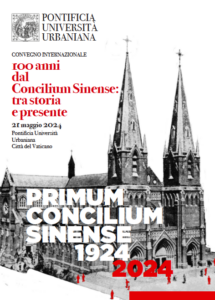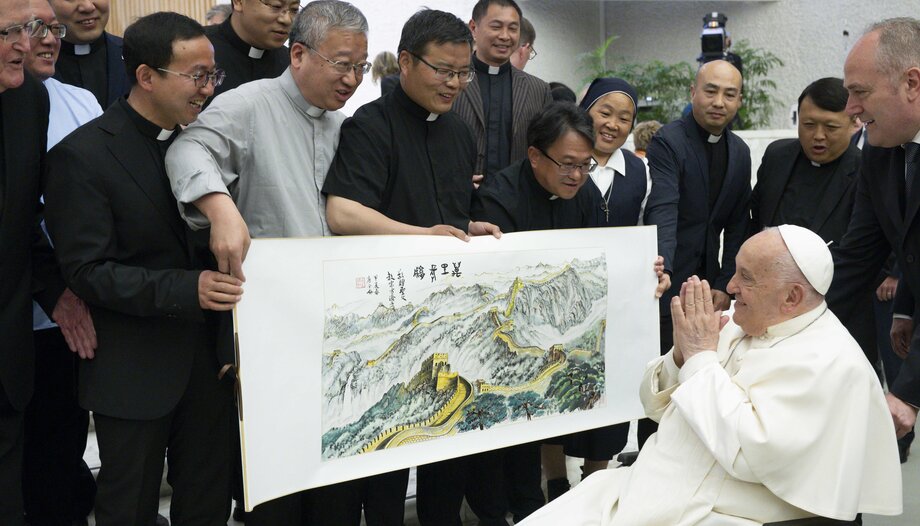On Tuesday, May 21, 2024, the Pontifical Urbaniana University will host an international congress entitled "100 years of the Concilium Sinense: between history and the present", in commemoration of the centenary of the First Council of the Catholic Church in China. This historic event, which took place in the Cathedral of St. Ignatius of Loyola in Shanghai in 1924, marked a milestone in the apostolic mission and in the process of development of the local Church in China, underlining the importance of a native Church led by native bishops and priests.
A bit of history
The event, now a century old, was convened in the context of Pope Benedict XV's apostolic letter "Maximum Illud" and was born as an attempt to deeply root the Christian faith in the Chinese social and cultural fabric. In fact, the Pope, whose birth name was "Giacomo della Chiesa", in his 1919 letter, urged the recognition that faith in Christ was not alien to any nation and that being a Christian did not imply submission to foreign powers. The Shanghai Council aligned itself with this view, promoting Chinese ecclesiastical autonomy and combating colonial influences on ecclesiastical practices.
During the "Sinense Council" crucial decisions were made for the growth of an indigenous clergy. Bishops and priests from the Asian country were encouraged to assume leadership of local communities, marking a decisive turning point in the history of the Catholic Church in China. The conciliar provisions were thus intended to counteract the colonial mentality and to foster the formation of an ecclesial identity proper to that territorial context. This also included the promotion of diocesan synods, meetings between religious and laity, and support for the creation of lay-led associations.
The centennial congress
The international congress organized by the Urbaniana will not only be a historical celebration, but also an opportunity to reflect on the actuality of that synodal experience, announced in a note from Fides, an organization that, together with the university, depends directly on the Dicastery for Evangelization (Section for First Evangelization and the New Particular Churches), and which, together with the Pastoral Commission for China, is coordinating the work.

The event will be attended by the Bishop of Shanghai, Joseph Shen Bin, Cardinal Secretary of State Pietro Parolin, and Cardinal Luis Antonio G. Tagle, proprefect of the Dicastery for Evangelization, who will deliver the closing address. Tagle, proprefect of the Dicastery for Evangelization, who will deliver the closing address.
Chinese academics and researchers will also speak, including Professor Zheng Xiaoyun, president of the Institute of World Religions of the Chinese Academy of Social Sciences, and Professor Liu Guopeng, a researcher at the same organization.
The proceedings will be introduced by a video message from Pope Francis and the screening of the documentary "Between History and the Present. 100 years of the Council of Shanghai".
Between memory and prophecy
The Shanghai Council, with its groundbreaking decisions, remains "a source of inspiration for the contemporary Church," reads the preparatory material. Indeed, the promotion of a local clergy and the development of the local Church are themes that continue to resonate today, especially in an era of globalization and growing intercultural tensions. The conference will seek to draw lessons from that experience to meet the modern challenges of evangelization.
A look to the future, to continue building, with hope and determination, a truly Catholic Church, in the fullest and most universal sense of the term.







